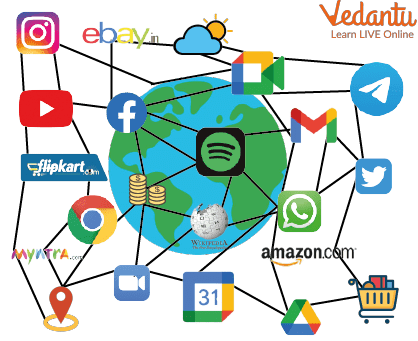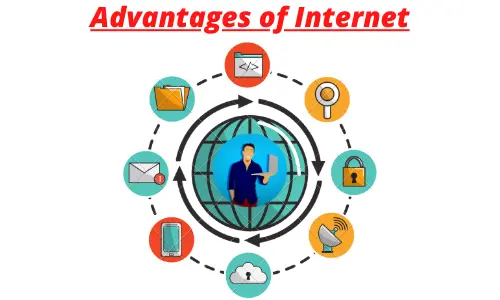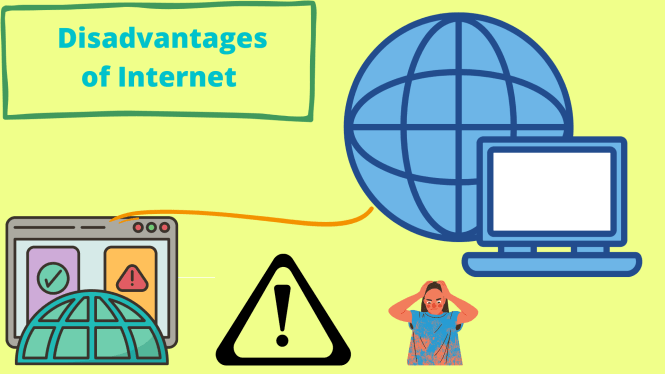How the Internet is Beneficial and Harmful at the same time

The internet has become an integral part of our daily lives, connecting people across the globe and providing instant access to a vast amount of knowledge. The internet has revolutionized the way we communicate, access information, and conduct business. However, like any technological advancement, the internet also brings along its share of advantages and disadvantages.
Advantages of the Internet:

One of the most significant advantage of the internet is the ease of access to an enormous amount of information. With just a few clicks, we can find answers to our questions, explore diverse topics, and stay updated on current events. This accessibility to knowledge has transformed education, research, and learning processes, enabling people to expand their horizons and make informed decisions.
The internet has revolutionized communication by bridging the gaps of time and distance. Through email, instant messaging, and various social media platforms, people can connect with friends, family, and colleagues around the world. Video conferencing tools have facilitated face-to-face interactions, fostering collaboration and breaking down geographical barriers.
The rise of e-commerce has transformed the way we shop. With online marketplaces, consumers can conveniently browse and purchase products from the comfort of their homes, benefiting from competitive pricing and a wide range of choices. Additionally, the internet has facilitated the growth of various online services, such as banking, bill payment, booking travel accommodations, and accessing entertainment platforms, making daily tasks more efficient and convenient.
The internet has revolutionized the entertainment industry, providing access to an abundance of multimedia content. Streaming services offer on-demand movies, TV shows, and music, eliminating the need for physical media.
Disadvantages of the Internet:

While the internet provides a vast amount of information, it can also lead to information overload, making it challenging to filter through the noise and find accurate and reliable sources.
The internet has raised concerns about privacy and security. Personal data shared online can be vulnerable to hacking, identity theft, or unauthorized access. Cybercriminals exploit weaknesses in online systems, and users must take measures to protect their privacy, such as using strong passwords and being cautious when sharing sensitive information. Additionally, online platforms often collect user data for targeted advertising, raising ethical questions about the use of personal information.
While the internet connects people across the globe, excessive internet use can lead to social isolation and detachment from real-world interactions. Spending excessive time online may lead to a decline in face-to-face interactions, affecting personal relationships and social skills.
The internet has not reached all corners of the world equally, resulting in a digital divide. Disadvantaged communities, particularly in developing countries, may lack access to affordable and reliable internet connectivity, limiting their ability to benefit from the opportunities offered online.
The internet has undoubtedly revolutionized various aspects of our lives, providing immense benefits in terms of information access, communication, e-commerce and entertainment. However, it also poses challenges related to information overload, privacy risks, social isolation, and the digital divide. To maximize the advantages and minimize the disadvantages, it is essential to promote digital literacy, online safety measures and efforts to bridge the digital divide, ensuring that the internet remains a tool for empowerment and inclusivity.


You must be logged in to post a comment.